Ever since the Ancient Greek dramatist, Aristophanes, packed his plays full of witty and satirical references to the leading political and social issues of the day, political fiction has been used as a means of commenting on the state of the world. As well as providing rich pickings for satirists, the world of politics has also inspired some of the best thriller writers to produce gripping page-turners based on intrigue and scandal at the heart of government.
Here are ten of our own favorite political fiction books from a wide range of different eras and literary genres, covering everything from high-octane thrillers and speculative fiction to biting social commentary on the horrors of war.
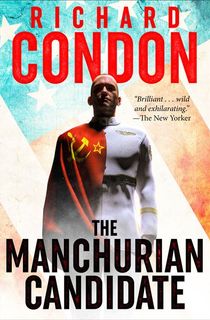
The Manchurian Candidate
In this classic political thriller, Sergeant Raymond Shaw returns home to the US from the Korean War as a hero, but, unbeknown even to him, he has already become involved in a Communist plot to overthrow the American Government. During Shaw’s time as a prisoner of war in Korea, his Communist captors programmed him to become a sleeper agent, tasked with assassinating a US Presidential candidate.
Richard Condon’s “brilliant…wild and exhilarating” Cold War thriller (The New Yorker) has inspired two Hollywood blockbuster movies and continues to captivate readers today.
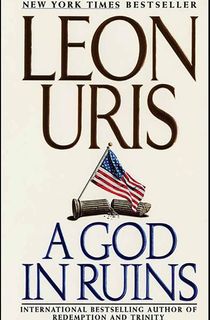
A God in Ruins
In the early 21st century, 60-year-old Quinn O’Connell harbors hope of becoming the second Irish Catholic President of the United States. He bases his electoral campaign on a long-earned reputation for integrity and honesty. However, just a week before the polls open, he discovers an explosive secret about his own past which threatens to derail his presidential ambitions.
With flashbacks all the way back to World War II, this compelling novel chronicles O’Connell’s life up to and including this crucial moment against the backdrop of some of the key moments in 20th-century history.
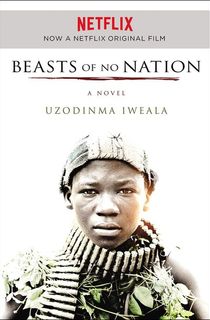
Beasts of No Nation
This haunting debut novel by Nigerian author Uzodinma Iweala chronicles the harrowing experiences of a child soldier in an unnamed war-torn West African country. Following his recruitment into a unit of guerilla fighters, the boy, Agu, loses contact with family and friends and gradually becomes detached from his former life.
The author adopts the clever narrative technique of allowing the boy soldier to tell his own tragic story, with the result that “the hypnotic present tense, first-person narration draws the reader deep into the child soldier’s shattered psyche” (Washington Post).
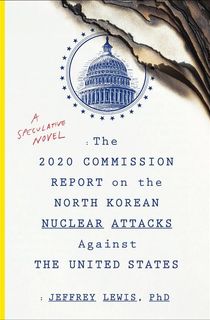
The 2020 Commission Report on the North Korean Nuclear Attacks Against the United States
This “chillingly plausible” speculative fiction novel (Economist) imagines an alternative history when 1.4 million American lives are lost in just three days as a result of North Korean nuclear attacks.
In the wake of this horrific tragedy, an independent Commission is established to investigate the reasons behind such a rapid escalation in violence and whether the US Government was sufficiently prepared to deal with the consequences of a nuclear war.
Lewis employs the unusual, yet highly effective, technique of using the fictional report on the Commission’s findings as the basis of this riveting and thought-provoking novel.
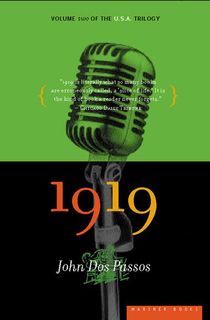
1919
1919 forms part of John Dos Passos’ USA Trilogy, which Forum acclaimed as a “vigorous and sweeping panorama of twentieth-century America.” First published in 1932, this second volume tells the story of American life from the turn of the century to the Great Depression through the eyes of a vividly drawn assortment of contrasting characters.
The experiences of these disparate fictional individuals, who range from the daughter of a Chicago minister to a radical Jew, are cleverly interwoven with collages of real-life newspaper clippings, labelled “Newsreel,” and short biographical essays on famous contemporary figures like Theodore Roosevelt and Woodrow Wilson. This then-revolutionary montage style of writing enables the innovative Dos Passos to portray in vivid detail the impact of seismic events like World War I on the lives of ordinary people, as well as exploring the gulf between the rich and poor in the American society of that era.
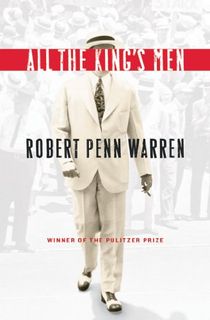
All The King's Men
Robert Penn Warren’s All the King’s Men is regarded as one of “American literature’s definitive political novels” (The Guardian). The 1947 Pulitzer Prize winning novel chronicles the dramatic rise to power of Willie Stark, a charismatic 1930s state governor in America’s Deep South, who bears more than a passing resemblance to a real-life Louisiana Senator of the era named Huey Long.
Stark begins his career as an idealistic lawyer, but during the course of the novel the would-be politician becomes a victim of his own excessive desire for power and influence. He stops at nothing to achieve his aims, with disastrous results.
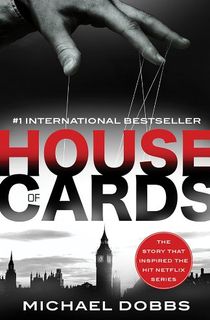
House of Cards
House of Cards is the first in a trilogy of novels to feature Michael Dobbs’ brilliantly conceived Machiavellian politician, Francis Urquhart. The books have subsequently served as inspiration for two hit TV series. Here the irresistibly villainous and amoral Urquhart utilizes his influential position as Chief Whip to learn everything there is to know about his colleagues.
He then proceeds to betray their darkest secrets in an ambitious bid to become Prime Minister. This gripping tale of greed, ambition and intrigue at the heart of the government carries a “ring of authenticity” (The Independent) throughout, probably because Dobbs himself worked as a British political advisor for several years.
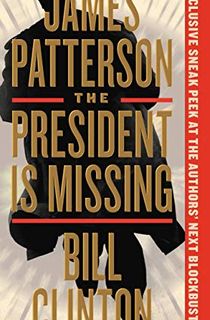
The President Is Missing
Former President Bill Clinton teamed up with bestselling author, James Patterson, to produce this “ambitious and wildly readable” political thriller (New York Times Book Review). As rumors circulate that terrorists are set to launch a deadly cyberattack on America with the help of traitors from within the White House itself, the President’s sudden unexplained disappearance sends shockwaves across the globe. Has President Jonathan Duncan been kidnapped or, even worse, is he colluding with the terrorists?
Set over the course of three days, this action-packed thriller combines James Patterson’s unrivalled ability for suspenseful storytelling with plenty of fascinating insights from Bill Clinton into the inner workings of the White House.
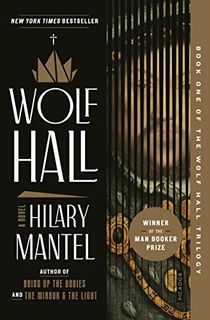
Wolf Hall
Hilary Mantel’s Booker Prize winning novel is often categorized under historical fiction, but her “darkly brilliant reimagining of life under Henry VIII” (The Boston Globe) may equally be regarded as a political thriller.
Wolf Hall’s main protagonist is Thomas Cromwell, whose swift rise to power as Henry’s most trusted advisor coincides with the Tudor monarch’s growing obsession with Anne Boleyn. Cromwell successfully orchestrates Henry’s divorce from Catherine of Aragon, leaving the King free to marry Anne, but will this cunning political schemer’s rapid rise to the top ultimately prove to be his undoing?
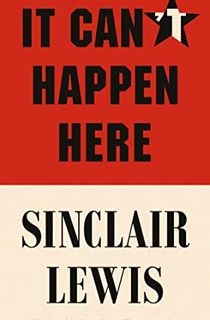
It Can't Happen Here
Written during the era of Hitler’s rise to power in Nazi Germany, Sinclair Lewis’ chillingly prescient 1935 bestseller imagines an alternative history when a fascist-leaning senator lands the top job in America. After becoming President, the seemingly charismatic Buzz Windrip abuses his position to become a virtual dictator, imposing a raft of authoritarian measures on a shocked American public and setting up a ruthless paramilitary force to ensure that his commands are followed.
Described by the New Yorker as “one of the most important books ever produced in the United States,” this cautionary tale reveals the potentially disastrous consequences of large-scale public apathy and complacency towards politics.





